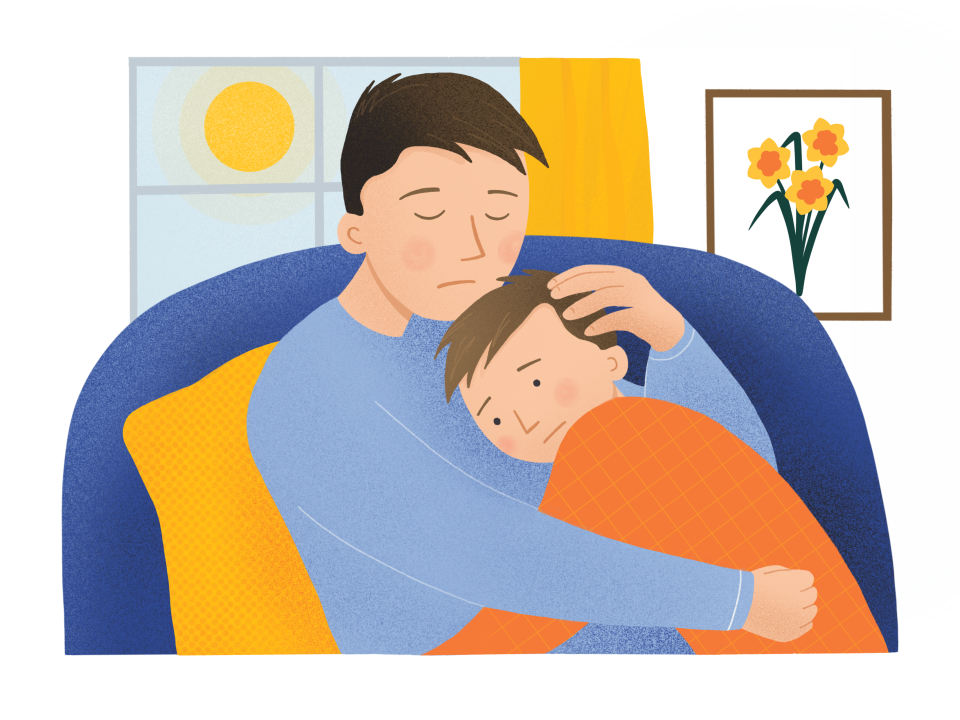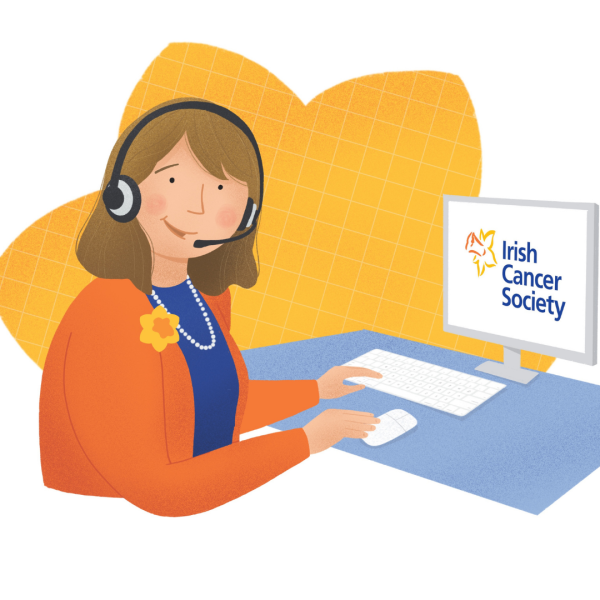Coping with your child’s diagnosis

First reactions
Hearing that your child has cancer is devastating. It can be overwhelming to try to deal with your emotions, support your child and plan for all the changes treatment will mean for your family. Even though many children are cured, a cancer diagnosis can still be very hard to cope with.
It’s likely you will feel a range of emotions including:
Shock
This is a completely normal reaction that can cause a range of physical and emotional symptoms in the short term. These include lack of sleep, lack of appetite, nausea and anxiety. Shock can also mean you might find it hard to take in or remember information about your child’s diagnosis and treatment. Usually this feeling will pass, but get support if you’re finding it hard to cope.
Fear and denial
You may feel scared, anxious and panicky about what’s going to happen and what the future holds. It can sometimes be hard to accept that children can experience serious illness. It may help to try to take each day as it comes and remember that many children are cured. Tell your GP if you’re feeling very anxious. Counselling may also help you. You can also speak to a nurse on our Support Line. Call 1800 200 700 or email info@cancer.ie
Sadness
It is natural to feel sad, depressed, overwhelmed or hopeless at times. You may find it difficult to eat or sleep, or feel as though you have no energy for the things you need to do each day. These painful and unpleasant feelings are sometimes unavoidable, and you may have them at various times during your child’s illness. It’s important to ask for help if you’re finding it hard to cope.
Guilt
Some people wonder if it was something they did or didn’t do that caused the cancer, or if it’s a punishment for something they did in the past. Sometimes parents blame themselves for not noticing their child’s symptoms quickly or feel they did not do enough. Always remember that you are not responsible for causing your child’s cancer.
Difficult feelings can affect you physically and emotionally, so get help if you or your family are finding it hard to cope. Your GP can help you, and there are many support services, such as free counselling funded by the Irish Cancer Society, and our cancer nurses, who can support and help you.
Who to tell and what to say
These questions worry all parents at first. It is normal to find it difficult to talk about it to others. Most parents find that it is best to tell close relatives and friends the truth. Their support will be invaluable and it will be a relief to talk to them. With acquaintances or colleagues, a short simple explanation is all that is needed. Your nurses and the medical social worker at the hospital can help you with this. You can also call our cancer nurses.
Talking to your child about their diagnosis
If your child is old enough to understand, it is better to be truthful with them so they trust you and the hospital team. Often the fear of the unknown can be more frightening than the reality. If you explain the basic facts of the disease, your child will realise that the treatment is needed. Even children who are quite young can understand about ‘good cells’ and ‘bad cells’ in their body. They can understand that the treatment will kill the ‘bad cells’ and stop them from becoming very ill.
Teenagers are at a stage of development where they want to be independent. They will often be more aware of their health problems than their parents realise. They may be experiencing feelings of confusion, fear of the unknown, or even fear of dying. By giving them information in a supportive and positive environment you can help them express their fears and worries.
Your medical social worker can provide you with children’s books about cancer and its treatment. These can help your child to understand their illness at their own level. The medical social worker, play specialist and nursing staff will also help you find ways of talking to your child. You can also call our Support Line or email them at supportline@irishcancer.ie. Ask to talk to our Children’s Cancer Nurse.
We have more information on talking about your child’s cancer to children of different ages, to siblings and to friends and family.

Talk to our cancer nurses
Our cancer nurses, including our Children's Cancer Nurse, can help you if you need support or information or if you just need to talk. They can also give you information about services, such as free professional counselling. Go to a Daffodil Centre or call our Support Line on Freephone 1800 200 700.
For more information
Phone
1800 200 700



